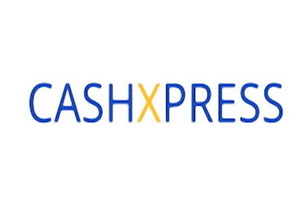In the face of harassment from online lenders in the Philippines due to an outstanding loan, the intricacies of addressing the issue can be overwhelming. This guide is designed to provide an extensive and professional approach to handling such situations effectively, ensuring financial resilience and protection of one’s rights.

Loan type
Short termFor a period of
180 daysRate ()
0.00% / monthLoan amount
PHP 25,000Approval in
5 minutesFirst loan free
no
Loan type
Short termFor a period of
180 daysRate ()
0.00% / monthLoan amount
PHP 20,000Approval in
5 minutesFirst loan free
no
Loan type
Long termFor a period of
4 monthsRate (PSK)
0.00% / monthLoan amount
PHP 25,000Approval in
5 minutesFirst loan free
no
Loan type
Short termFor a period of
365 daysRate ()
0.00% / dayLoan amount
PHP 20,000Approval in
15 minutesFirst loan free
no
Loan type
Short termFor a period of
90 daysRate ()
0.00% / dayLoan amount
PHP 25,000Approval in
15 minutesFirst loan free
no
Loan type
Short termFor a period of
365 daysRate ()
0.00% / dayLoan amount
PHP 50,000Approval in
15 minutesFirst loan free
no
Loan type
Short termFor a period of
90 daysRate ()
0.00% / dayLoan amount
PHP 20,000Approval in
15 minutesFirst loan free
noStep 1: Maintain Composure Amidst Harassment
Dealing with harassment from online lenders demands a calm and composed response. It is essential to resist the temptation to react emotionally, as such reactions can potentially exacerbate the situation. To establish a solid foundation for your case, meticulously document all instances of harassment, including dates, times, and the nature of the harassment. Additionally, preserve all forms of communication from the harasser, such as emails, voicemails, and text messages, to serve as crucial evidence.
Engaging in open conversations with someone you trust about the situation can provide emotional support and valuable insights. Seeking legal advice early on is also advisable, as it equips you with a deeper understanding of your rights in such circumstances.
Step 2: Acquire In-Depth Knowledge
Understanding Unfair Collection Practices
To effectively counter harassment, it is crucial to comprehend what constitutes unfair collection practices. Debt collectors are strictly prohibited from using threats, employing obscene language, or contacting borrowers at odd hours. Furthermore, they are not allowed to misrepresent the amount of debt owed.
Regulatory Agencies
Navigate the regulatory landscape by familiarizing yourself with agencies such as the Federal Trade Commission (FTC) and the Consumer Financial Protection Bureau (CFPB), which specifically address and investigate harassment complaints against debt collectors.
SEC Memorandum Circular 18
Delve into the specifics outlined in SEC Memorandum Circular 18, as it delineates the unfair collection practices prohibited for Financing Companies (FCs) and Lending Companies (LCs). Prohibited actions encompass contacting borrowers at irregular hours, using obscene language, misrepresentation, and employing threats or intimidation.
Consent for Contacting Borrower’s Contacts
Clarify the circumstances under which collecting agents are permitted to contact individuals from the borrower’s contact list with the borrower’s explicit consent.
Liability for Outsourced Collection
Recognize that FCs and LCs retain liability for unfair collection practices even if they choose to outsource their collection activities. The outsourcing company is not absolved of responsibility, placing the onus squarely on the FC or LC.
Penalties for Unfair Collection Practices
Dive into the nuances of penalties outlined in SEC Memorandum Circular 18, which may vary depending on the situation. Violating guidelines set by the FTC and CFPB can result in penalties ranging from monetary fines to temporary suspension or complete revocation of operating authority.
Verification of Online Lender Registration
Empower yourself by understanding how to verify the registration status of an online lender with the SEC. The SEC’s website is a valuable resource for checking a company’s registration status using their name or registration number.
Prohibition of Embarrassment Tactics
Recognize that using a borrower’s photo to embarrass them for debt collection purposes is strictly prohibited and constitutes an unfair collection practice. Debt collectors are bound by regulations that prohibit the use of threats, obscene language, or contacting borrowers during odd hours.
Step 3: Arrange Strategically
Taking action is imperative when facing harassment from debt collectors. Engage in open conversations with trustworthy individuals, seek legal counsel, and deepen your understanding of your rights. These steps collectively form the foundation for protecting yourself from unfair collection practices.
Step 4: Pursue Empowerment
Empower yourself by taking proactive steps, including but not limited to:
- Thoroughly understanding your rights in the given context.
- Consulting with a legal professional to gain insights into the specifics of your situation.
- Taking appropriate actions to shield yourself from unfair collection practices.
- Seeking assistance from regulatory bodies such as the FTC or CFPB.
- Filing a formal complaint against the harasser.
- Considering reaching out to the media to raise awareness of your situation.
Step 5: Rely on Trusted Sources
To bolster your case, refer to reliable sources such as news articles, government circulars, and complaint mechanisms. These sources can provide valuable information and support for your stance.
Conclusion
Addressing harassment from online lenders necessitates a strategic, informed, and level-headed approach. By remaining composed, understanding your rights, and taking proactive measures, you not only protect yourself but also contribute to the promotion of fair lending practices in the financial landscape.
Sources
- Online lending app workers nabbed for allegedly harassing clients, contacts (GMA News Online, 2020)
- SEC MC No. 18 s.2019 – Prohibition on Unfair Debt Collection Practices of Financing Companies and Lending Companies (SEC website)
- Mechanics for Complaints (NPC website)
- List of Recorded Online Lending Platforms (SEC website)
- List of Revoked and Suspended Lending Companies (SEC website)
- NPC Circular No. 20-01 – Guidelines on the Processing of Data for Loan-Related Transactions
- Directory of Banks and Non-Bank Financial Institutions (BSP website)
- Complaint Form (SEC website)
Note: The information provided is for general knowledge and may not be the most recent. Consultation with legal professionals is advised for specific cases.


![AUB Exchange Rate Today [Latest Update] March 2026 AUB Exchange Rate Today [Latest Update] March 2026](https://cashloanph.com/wp-content/uploads/2023/05/aub-exchange-rate-today-latest-update-cashloanph-438x246.jpg)

